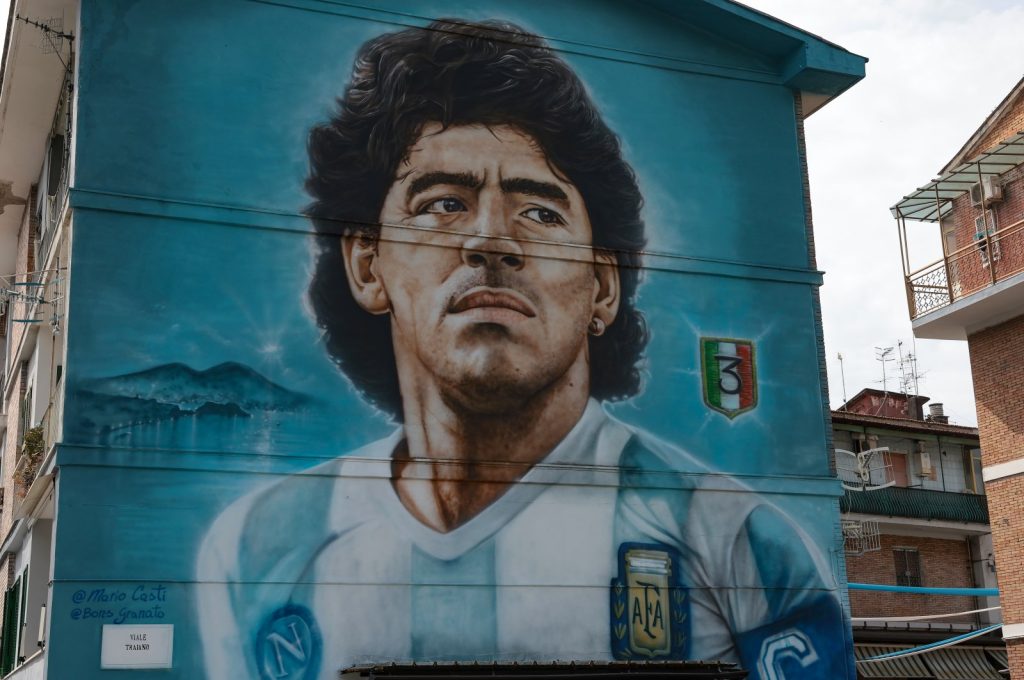Diego Armando Maradona, the Argentine football icon who passed away on Nov. 25, 2020, following a heart attack, is being commemorated on the fourth anniversary of his death.
Born on Oct. 30, 1960, in Buenos Aires, Maradona grew up in a modest household.
His father was a factory worker, and his mother a homemaker.
By age 8, his talent was discovered, leading him to the local club Estrella Roja.
His ascent was rapid; before turning 16, he signed a professional contract with Argentinos Juniors, where he began to dazzle fans with his extraordinary skills.
Maradona’s career trajectory soon took him to Boca Juniors, where he won a championship in 1981, and then to Europe, where his legend would fully unfold.
Rise of global icon
In 1982, Maradona joined Barcelona, making an immediate impact.
Over two seasons, he scored 38 goals in 58 matches and helped secure three trophies: the Copa del Rey, the Spanish Super Cup, and the La Liga Cup.
However, it was his 1984 move to Napoli that solidified his place in football history.
In Naples, Maradona became a phenomenon.
Over seven seasons, he played 259 matches and scored 115 goals, transforming Napoli into a title contender.
Under his leadership, the club won two Serie A titles, the UEFA Cup, the Coppa Italia, and the Italian Super Cup, creating an era of success that fans still revere.
After leaving Napoli, Maradona had stints with Sevilla, Newell’s Old Boys, and a return to Boca Juniors before retiring in 1997.
His club career saw him play 588 matches and score 312 goals across all competitions.
1986 World Cup
Maradona’s most iconic moment came during the 1986 FIFA World Cup, where he led Argentina to glory.
His performance throughout the tournament was nothing short of sensational, but the quarterfinal against England cemented his legend.
In that match, Maradona scored two of the most famous goals in football history: the infamous “Hand of god” goal and the “Goal of the Century,” where he dribbled past five English players over 60 meters before finding the net.
Argentina went on to defeat West Germany 3-2 in the final, securing their second World Cup title.
Maradona earned 91 caps for Argentina, scoring 34 goals, and his exploits in 1986 remain a benchmark for greatness.
Scandalous god
Despite his brilliance on the pitch, Maradona’s career was often overshadowed by controversies.
His struggles with drug addiction became public in 1991, leading to a 15-month ban from football.
In 1994, he was expelled from the World Cup after testing positive for banned substances.
Even after retiring, Maradona’s off-field issues persisted.
Health problems linked to his addiction and a longstanding tax dispute with Italian authorities over 37 million euros ($35.8 million) in unpaid taxes from his Napoli days cast a shadow on his legacy.
Dimmed spark
Maradona’s foray into coaching was less illustrious than his playing days.
Beginning in Argentina with stints at Textil Mandiyu and Racing Club, his managerial career took a high-profile turn when he was appointed head coach of the Argentina national team in 2008.
Despite guiding Argentina to the 2010 World Cup, his tenure ended after a humiliating 4-0 defeat to Germany in the quarterfinals.
Known for his fiery personality, Maradona also courted controversy during his coaching career, including a two-month FIFA ban for verbally attacking reporters.
He later managed clubs in the UAE, Mexico, and Argentina, but his coaching career failed to replicate the glory of his playing days.
Legacy lives on
Maradona’s absence was deeply felt during the 2022 FIFA World Cup, the first tournament held after his death.
Fittingly, Argentina triumphed, defeating France in a thrilling final at Lusail Stadium to claim their third World Cup title.
The victory served as a poignant tribute to the man who had carried the nation to glory decades earlier.


